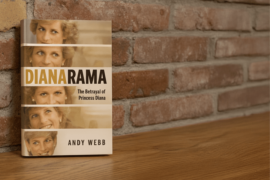BBC thematic reviews were created by the Board of Management in the aftermath of the Serota Review (2021) into the catastrophic handling of the Princess Diana interview scandal. They were an attempt to restore transparency, impartiality and editorial integrity.
The fourth thematic review, published last Thursday — on ‘portrayal and representation’ — achieves the exact opposite. It shows that the BBC has cynically perfected the art of appearing self-critical while protecting its own massive confirmation bias.
There is a glaring omission in the review: its refusal to confront the Diversity, Equity and Inclusion (DEI) agenda that now animates the BBC with near-religious fervour and has, more broadly, infected the entire body politic.
Astonishingly, the review never names DEI, never interrogates it or regards the institutional agenda as controversial. Instead, it treats diversity and all its associated assumptions as a neutral, unquestionable good rather than a highly partisan ideology with consequences. That silence is the review’s organising principle.
This is especially extraordinary because the BBC for at least a quarter of a century has not been a neutral observer of DEI. It is one of its most enthusiastic institutional champions. The review itself notes that the BBC has spent £243million on ‘diversity’ content, over double its target.
Further, over many years, the Corporation has embedded diversity targets, recruitment schemes, commissioning incentives, monitoring frameworks and partnerships that explicitly prioritise demographic outcomes. In some cases, white candidates have been excluded from particular schemes altogether. The BBC has publicly partnered with organisations such as Creative Access, the sole purpose of which is to maximise ethnic-minority representation in the creative industries, while showing no interest in research or partnerships that might ask whether such policies create new forms of unfairness or exclusion.
None of this appears in the review. Arguably, it is instead structured to normalise the BBC’s DEI programme while rendering it invisible – beyond scrutiny, beyond debate and beyond complaint.
To understand why, one clue is the duo who penned it. The authors, Anne Morrison and Chris Banatvala, are presented as ‘independent’. But they are not. Morrison is a former senior BBC executive who ran major factual departments and later became Director of the BBC Academy. Banatvala is a former Director of Standards at Ofcom (which, in seven years as the regulator of the BBC, has upheld zero impartiality complaints against it), a past adviser to the BBC Trust, a contributor to the Serota Review itself and an external complaints reviewer for Channel 4. These are not rigorously external auditors working to challenge the BBC’s assumptions from first principles. They are broadcasting establishment insiders by culture and career, steeped in the same confirmation bias and institutional norms as the organisation they are assessing.
That matters, because the review they have produced is written entirely within the BBC’s DEI framework, not about it.
A methodological weakness follows inevitably. The review never clearly defines what it is measuring, how success is judged, or how its conclusions could be challenged. There is no baseline, no transparent weighting of evidence, no systematic analysis of output over time. Instead, it relies on stakeholder interviews, audience sentiment and selective content sampling – the very tools least capable of exposing systemic bias. When the authors state that ‘portrayal’ is subjective by nature, they quietly foreclose the possibility of accountability altogether.
Most damaging of all is the review’s deliberate exclusion of analysis of news and political output. It is not possible to assess how the BBC portrays and represents the UK while excluding the genres that most powerfully shape public understanding of reality: daily news, current affairs, political interviewing, agenda-setting and moral framing. It is precisely in news and politics that DEI ideology exerts its strongest influence – not through casting, but through assumptions about power, victimhood, legitimacy and dissent.
By fencing off this territory, the authors ensure that the review cannot collide with the BBC’s most controversial editorial practices. The inquiry is confined to safer ground — drama, entertainment and abstract ‘communities’ – where progress can always be claimed and failure endlessly deferred.
This explains the review’s near-blindness to the growing distortion of BBC programming. A mild telling-off is aimed at some of the extremities in this domain, for example of ‘tick box’ diversity casting, such as a black Estella in an adaptation of Charles Dickens’s Great Expectations or of a mixed-race actor as Sir Isaac Newton in Doctor Who. But the review does not establish the extent to which this happens, or whether such output misleads audiences, distorts history or undermines trust. It could not do so without questioning the DEI mission itself.
That mission has a long pedigree at the BBC. In January 2001, the then Director-General Greg Dyke set the ball rolling by declaring the BBC ‘hideously white’. By 2015, BBC trustee and diversity adviser Tanni Grey-Thompson was publicly arguing that the Corporation might need to spend £100million to ‘get diversity right’ and that executives who failed to deliver should be fired.
This history is nowhere acknowledged in the thematic review. The BBC’s own ideological commitment and bias is airbrushed out, allowing the authors to pose as neutral arbiters rather than participants in a long-running project.
Taken as a whole, this waste-of-time review does not merely fail to illuminate the BBC’s problems: it actively reinforces the Corporation’s impregnability in terms of claims of bias.
When the BBC was facing serious criticism over its 30-year deception about the Princess Diana Panorama interview of 1996, thematic reviews were sold to the public, Parliament and critics as a shiny new mechanism of accountability. In reality, they have become a means by which the BBC confers legitimacy on its own assumptions while remaining judge and jury in its own cause.
The Corporation commissions the review, defines the terms of reference, selects authors steeped in its own culture, excludes the most sensitive areas of output, and then presents the result as independent validation. Complaints are deflected with the same refrain: ‘We have already examined this’. This is not scrutiny. It is institutional armour.
That is why the review must be read alongside what happened in December, when — after a brief and carefully managed bout of apparent contrition — the BBC Board of Management effectively discarded the Prescott dossier, a detailed and serious body of concerns about systemic failures of impartiality.
It showed that yet again, when faced with substantive external challenge, the BBC’s instinct is not reform but a circling of the wagons.
This latest thematic review is part of that retrenchment. Far from opening the Corporation to renewed honesty, it closes ranks more tightly. It reasserts the BBC’s authority to define what bias is, what diversity means, which questions are legitimate, and which areas are off limits.










